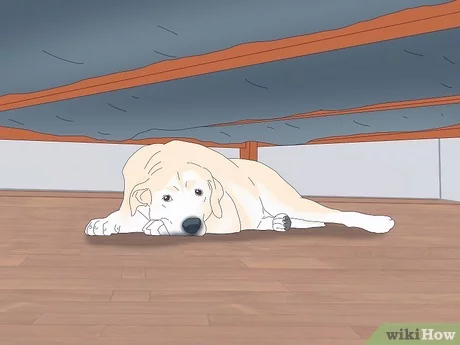Why Does My Dog Keep Licking His Butthole
Why Does My Dog Keep Licking His Butthole: A Comprehensive Guide
Dogs are wonderful pets that bring joy and companionship to our lives. They are loyal, playful, and always eager to please their owners. However, there are times when their behavior can be puzzling and even gross. One such behavior is when they keep licking their buttholes. If you are a dog owner wondering why your furry friend keeps doing this, then you have come to the right place. In this article, we will explore the possible reasons why dogs lick their buttholes and what you can do about it.
Possible Reasons Why Dogs Lick Their Buttholes
1. Itching or Irritation
One of the most common reasons why dogs lick their buttholes is because they are experiencing itching or irritation in that area. This could be due to various reasons such as allergies, parasites, infections, or anal gland problems. Dogs have two small glands located just inside their rectum that produce a strong-smelling fluid. These glands may become full or infected, causing discomfort and itchiness in the surrounding area.
2. Cleaning Themselves
Dogs are naturally clean animals and often groom themselves by licking various parts of their body. Licking their butthole may simply be a part of their grooming routine to keep themselves clean.
3. Boredom or Anxiety
Sometimes dogs may develop repetitive behaviors like licking due to boredom or anxiety. If your dog is left alone for long periods or lacks stimulation and exercise, they may resort to excessive licking as a way to cope with stress.
4. Medical Conditions
Certain medical conditions such as Cushing’s disease, diabetes, or thyroid problems can cause increased thirst and urination in dogs. As a result, they may develop irritation around their anus due to frequent bowel movements and urine scalding.
5. Dietary Issues
In some cases, dietary issues like food allergies or intolerances can cause dogs to experience gastrointestinal problems, which may result in itching or irritation around their anus. Additionally, if a dog’s diet lacks essential nutrients like fiber, they may be prone to constipation, causing discomfort and itchiness.
What Can You Do About It?
If you notice your dog excessively licking their butthole, it is essential to take action to address the underlying issue. Here are some steps you can take:
1. Consult Your Veterinarian
The first step is always to consult your veterinarian to rule out any underlying medical conditions that may be causing your dog’s behavior. Your vet may perform a physical exam and run tests such as bloodwork or fecal analysis to identify any health issues.
2. Address Dietary Concerns
If dietary issues are suspected, your vet may recommend switching to a different type of food or adding supplements that can help improve digestive health. Additionally, offering high-fiber foods like pumpkin or green beans can help regulate bowel movements and reduce itching.
3. Provide Adequate Exercise and Stimulation
To combat boredom and anxiety-related behaviors, ensure that your dog gets enough exercise and mental stimulation daily. Playtime, training sessions, and puzzle toys can all help keep your dog engaged and entertained.
4. Keep the Area Clean
Regularly cleaning your dog’s anal area with mild soap and water can help prevent infections and reduce the likelihood of irritation from fecal matter.
5. Teach Alternative Behaviors
Finally, training your dog to engage in alternative behaviors when they feel the urge to lick their butthole can help break the habit over time. For example, redirecting them to a toy or treat can provide an alternative outlet for their behavior.
Conclusion
While dogs licking their buttholes may seem gross and peculiar behavior to us humans, it is often a sign that something is amiss with our furry friends. Understanding the possible reasons why dogs engage in this behavior is the first step in addressing it. By taking proactive steps to identify and treat any underlying medical, dietary, or behavioral issues, you can help your dog feel more comfortable and improve their overall quality of life.



